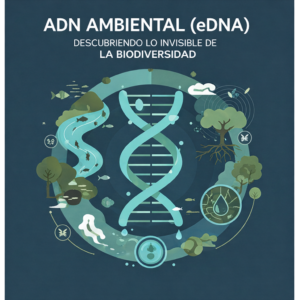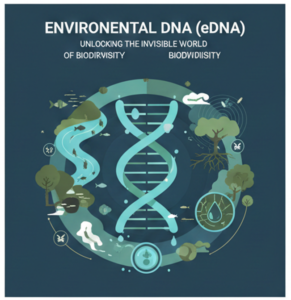The PAS 2060 certification is the internationally recognized standard that allows organizations to prove their commitment to carbon neutrality. Developed by the British Standards Institution (BSI), it provides a clear and structured framework for measuring, reducing, and offsetting greenhouse gas emissions.
For businesses aiming to become a carbon neutral company, PAS 2060 offers not only credibility but also a competitive advantage in today’s sustainability driven markets. Unlike voluntary claims of “net zero” or “carbon offsetting,” PAS 2060 ensures transparency, verification, and accountability.
What is PAS 2060 and Why is it Important?
PAS 2060 defines the requirements to demonstrate carbon neutrality through a documented process. Companies must measure their carbon footprint, reduce emissions where possible, and offset the remainder through certified projects.
Its importance lies in credibility: any organization can claim to be carbon neutral, but only PAS 2060 certification provides independent verification of those claims.
PAS 2060 vs Net Zero: Key Differences
While Net Zero focuses on long-term elimination of emissions, PAS 2060 certifies neutrality within a defined period. Net Zero is a global climate goal, while PAS 2060 is a standard businesses can adopt now to show progress and leadership.
| Standard / Concept | Scope | Main Objective | Verification | Timeframe | Typical Use Case |
|---|---|---|---|---|---|
| PAS 2060 | Organizational or product level | Demonstrate carbon neutrality | Independent third-party verification | Short to medium term (annual certification) | Companies proving neutrality to clients, investors, regulators |
| Net Zero | Global, national, or corporate | Achieve zero emissions balance (reduce + offset) | No universal verifier; depends on pledges | Long term (2050 targets) | Governments, large corporations committing to climate goals |
| ISO 14064 | Organizational level | Standardize GHG measurement and reporting | Verified by accredited auditors | Continuous | Companies reporting emissions for compliance and transparency |
Requirements for PAS 2060 Certification
To obtain PAS 2060, organizations must comply with four essential principles:
Main Compliance Criteria
- Quantification – Measure the full carbon footprint of the business.
- Reduction – Implement strategies to cut emissions across operations.
- Offsetting – Purchase verified carbon credits for unavoidable emissions.
- Documentation – Publish a Qualifying Explanatory Statement (QES) proving neutrality.
Documentation and Auditing
The QES includes emission data, reduction initiatives, and details of offset projects. This document must be independently verified by an accredited third party.
Cost and Time Estimate
Certification costs vary depending on company size, sector, and scope. On average, the process may take 6–12 months, including data collection, audits, and verification.
Benefits of PAS 2060 Certification for Businesses
Reputation and Customer Trust
Being recognized as a carbon neutral business strengthens brand image and builds trust with consumers, investors, and stakeholders.
Competitive Advantage
Many public tenders and large corporations now require sustainability certifications. PAS 2060 can help companies win contracts and expand into environmentally conscious markets.
Contribution to Sustainable Development
By reducing emissions and investing in carbon neutral development projects, businesses contribute directly to global climate goals.
How to Achieve PAS 2060 Certification Step by Step
Step 1: Measure Your Carbon Footprint
Conduct a full inventory of direct and indirect emissions (Scopes 1, 2, and relevant Scope 3 categories).
Step 2: Reduce and Offset Emissions
Implement reduction measures such as energy efficiency, renewable energy adoption, and optimized logistics. Remaining emissions must be offset through recognized carbon neutral gas or renewable projects.
Step 3: Verification with Accredited Bodies
Work with independent certification organizations like BSI or other accredited auditors to ensure full compliance with PAS 2060.
PAS 2060 in Different Sectors
Energy and Transport
Utilities and transport companies face heavy emissions. PAS 2060 enables them to demonstrate real progress towards carbon neutral gas and fuel solutions.
Industry and Construction
Manufacturers and construction firms can reduce their carbon neutral footprint through supply chain improvements and green building practices.
Services and SMEs
Small and medium-sized enterprises benefit from PAS 2060 by boosting credibility and accessing new business opportunities without excessive costs.
Frequently Asked Questions about PAS 2060 Certification
Who can grant PAS 2060 certification?
Accredited bodies such as BSI or equivalent organizations in each country.
What is the difference between PAS 2060 and ISO 14064?
PAS 2060 certifies carbon neutrality, while ISO 14064 provides methodologies for greenhouse gas reporting.
How long is PAS 2060 valid?
Certification is valid for one year and requires annual renewal.
How much does PAS 2060 certification cost?
Costs depend on company size and scope but typically range from mid to high five figure amounts for larger organizations.
The PAS 2060 certification is the most reliable path for companies that want to prove their commitment to sustainability and carbon neutrality. It ensures measurable reductions, transparent reporting, and verified offsetting offering businesses both credibility and a competitive edge.
In a world where greenwashing is widespread, PAS 2060 provides trust, authority, and differentiation. For any organization seeking to lead in sustainable development, PAS 2060 is not just an option it is a necessity.







